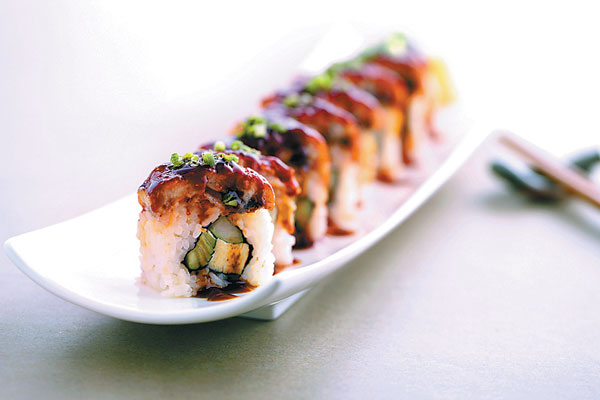
 |
|
Eel maki roll at Hagaki. [Photo provided to China Daily] |
Hagaki also boasts a lively sushi bar, where diners see how their food is made and enjoy the process with the chefs. But since we'd come for sukiyaki as well, we chose to sit at a table rather than the sushi counter to have more space.
The prawn and vegetable tempura (68 yuan) at Hagaki is one of the best I've tasted. It was crispy, light, and not greasy, even after we had let the last pieces get cold. The sauce for the tempura was just right, neither too sweet nor too salty.
Beautifully presented, the salmon and scallop sashimi is sliced thick and meaty, and the result is pleasingly fresh and tender. Shrimp sashimi is so fresh that it takes on a very sweet texture. Ginger slices, displayed into a flower-like shape, help balance the cool effect in your body as you eat up more raw meat.
The sushi at Hagaki gets very innovative, and it's no surprise to learn that the kitchen staff here was originally trained by Max Levy, who brought sushi skills he'd honed in New York and Japan to Hagaki's parent company, Swire Properties, several years ago when he was executive chef at Opposite House.
Some food historians say the California roll was invented in the late 1970s in California, where local sushi chefs used avocado as a substitute for raw fish in sushi. They felt the avocado was well-known to Californians and also provided the same mouthfeel of the luscious, oily raw fish in the Japanese cuisine.
Hagaki is located near Wangjing, a hub of the Korean community in Beijing, and so we e